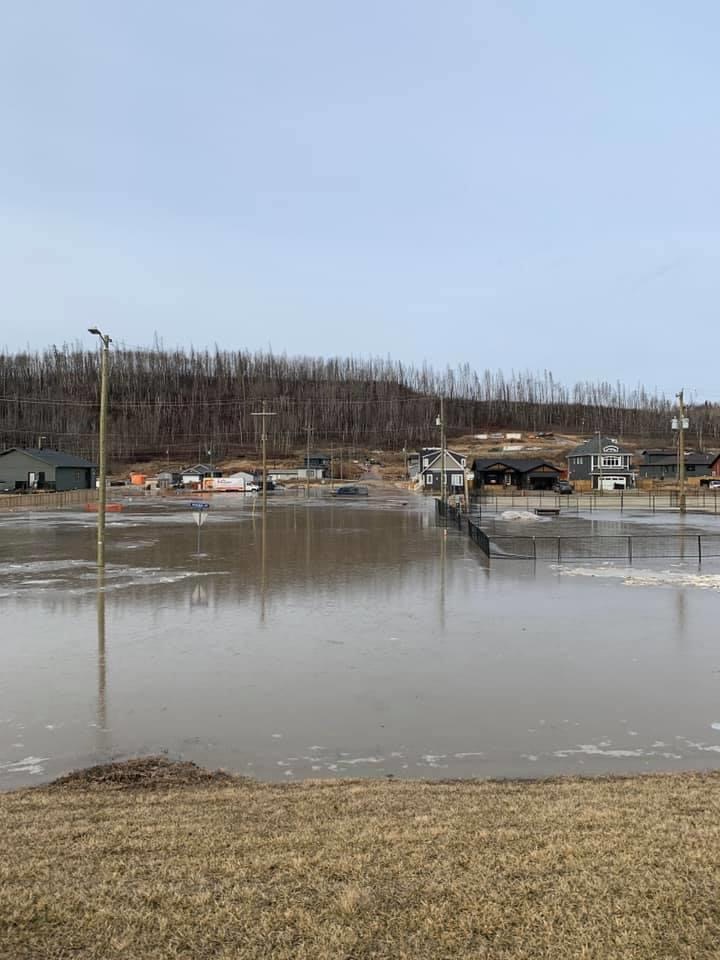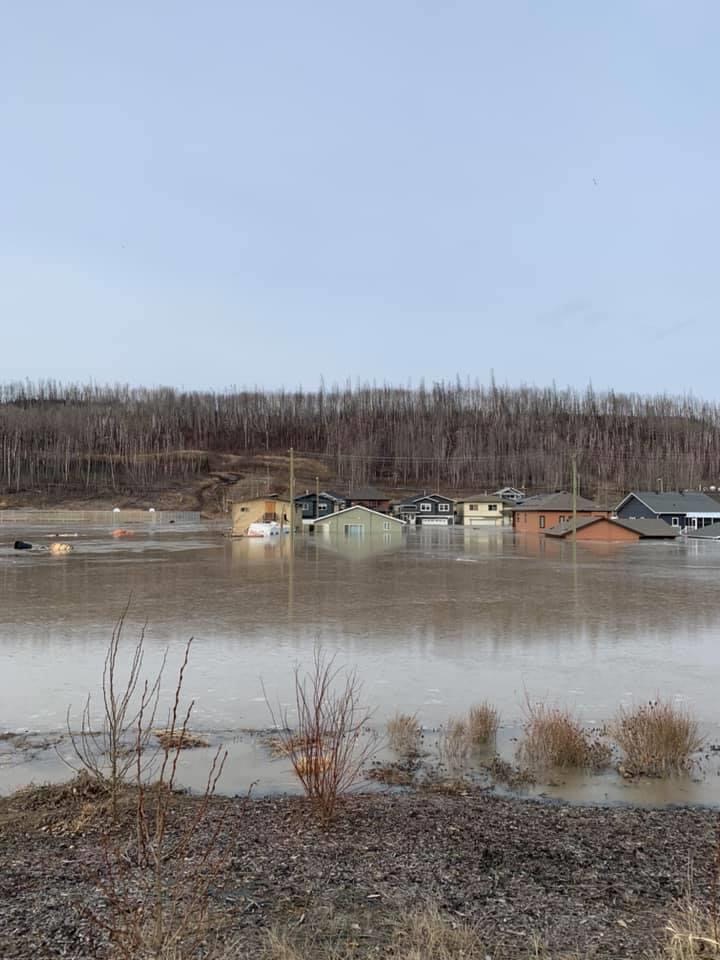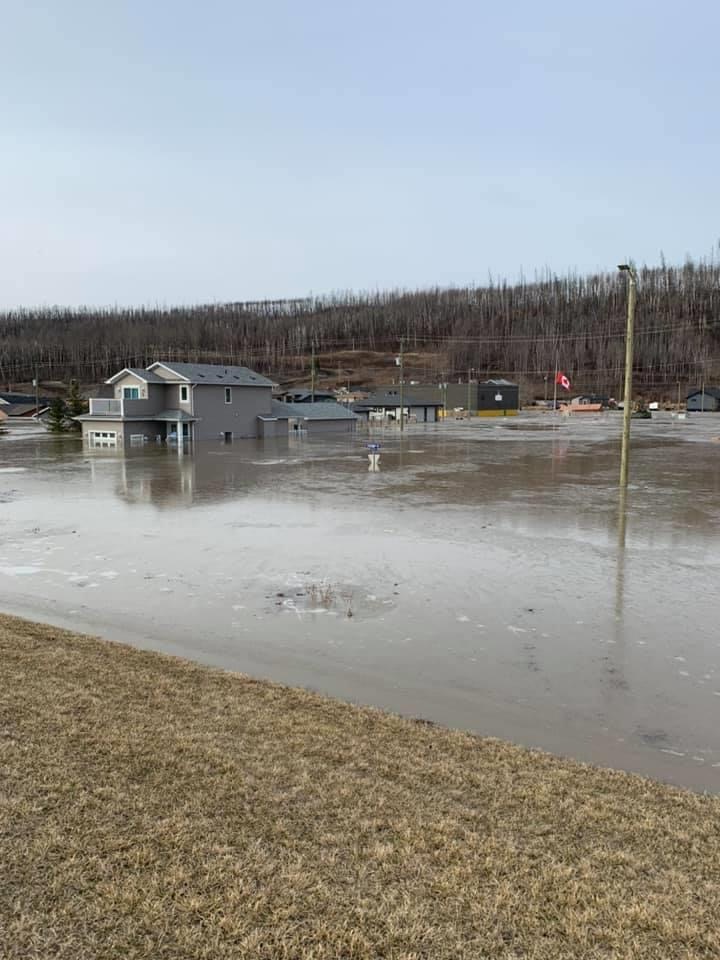Editor’s note: For the most recent updates on both voluntary and mandatory evacuations in the Fort McMurray area, please visit the Regional Municipality of Wood Buffalo’s website.

Provincial and federal governments say they are ready to help with flooding in northern Alberta as the number of evacuations in Fort McMurray continued to increase Monday.
“We have requested assistance from the federal government as we face this new crisis,” Don Scott, mayor of the Regional Municipality of Wood Buffalo, said in a social media post.
It came as spring ice breakup on the Athabasca and Clearwater rivers led to flooding and the complete closure of the city’s downtown core.
Deputy Prime Minister Chrystia Freeland said the federal government was aware of the situation and was looking for ways to help.
“The fact that flooding season and, in due course, forest fire season is coinciding with coronavirus in Canada is posing some special challenges,” she said in Ottawa. “We have been gearing up for those from the outset and this is an issue we are looking at urgently today.”
The municipality on the weekend declared a second state of local emergency on top of one declared last month because of the COVID-19 pandemic.
Premier Jason Kenney said in a tweet Monday that he and Environment Minister Jason Nixon were on their way to Fort McMurray to “get eyes on the flood situation and to ensure all necessary support is being provided in response to the local emergency.”
Kenney said he would meet with Scott, local members of the legislature and emergency management officials.

Get daily National news
No one from the municipality was available to comment Monday, but Scott said Sunday that something always occurs when the ice breaks each spring and this happens to be a one-in-20-year event.
Officials had been monitoring an ice jam about 10 kilometres upstream for several days and it let loose early Sunday.
The municipality started issuing evacuation orders in some areas Sunday and they continued before dawn Monday for properties along several streets in the lower townsite. Within an hour the municipality had closed access to the entire downtown area.
Since Sunday, more than 5,000 people have checked in at reception centres, the RMWB said in a media release Monday afternoon.
Evacuees were told to report to a registration centre at the Oil Sands Discovery Centre, about seven kilometres to the south and farther removed from the rising water.
“The public is urged to follow mandatory evacuation orders immediately,” officials said Monday on the municipality’s Facebook page. “Overnight we have rescued more than 100 people who did not adhere to these orders.”
More evacuation orders were issued later Monday.
Residents of several additional communities in the lower townsite were asked to go to the registration centre if they needed immediate support or a place to stay.
Shortly before 7:30 p.m. on Monday night, the Regional Municipality of Wood Buffalo said Fort McMurray’s entire lower townsite had been put under a mandatory evacuation order, with the exception of Northern Lights Regional Health Centre and Grayling Terrace.
“Evacuate immediately if you are in the lower townsite,” an alert said. “The lower townsite is closed for access.
“If you require lodging and support and are currently not at a registration centre, please report to the drive thru reception centre that has been set up at Casman Centre in Thickwood.”
Earlier in the day, some residents who live on the east side of Highway 63, which is closer to the Clearwater River, were also told to report to the Casman Centre, a secondary registration centre.

Highway 63, the main route into and out of the city, remained open and the order did not include the hospital.
Officials said they remained focused on maintaining critical infrastructure such the hospital. Significant resources are dedicated to berming and sandbagging the area surrounding the hospital to mitigate flood risk.
Alberta’s chief medical officer of health Dr. Deena Hinshaw said during her daily briefing that officials were prepared for potential evacuations due to floods or fires.
“Our teams at health have been working with the provincial operations centre to make sure there are considerations, for example, in evacuation centres,” she said.
Hinshaw said that includes physical distancing and sanitation measures to reduce the spread of COVID-19.

Health authority officials directed the municipality to issue a boil water advisory due to reports of discolouration in tap water in some Fort McMurray neighbourhoods. It was later expanded to the entire city, as well as to Anzac, Draper, Fort McMurray First Nation, Gregoire Lake Estates and Saprae Creek Estates.
Scott told residents in a social media post Monday afternoon that he had been receiving requests to provide a video or an update on the flooding.
“Please know that right now the primary focus of our entire administrative team and council is the safety of residents,” said Scott.
The mayor said municipal staff were working with volunteers, RCMP and other partners to ensure that safety.
“I know you might feel anxious, afraid, or frustrated,” he wrote. “This is a hard time in our community, and it’s certainly not our first hard time.”
Scott said residents are displaying the same strength and courage as they have in the past.
Fort McMurray has dealt with its share of disasters, including a raging wildfire in May 2016 that forced an evacuation of the entire city and destroyed 2,400 homes and buildings.
For alerts, updates and more information, visit rmwb.ca/riverbreakup.

















Comments
Want to discuss? Please read our Commenting Policy first.